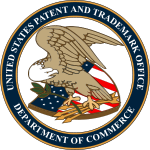[author: Donald Zuhn]
 One day after the Supreme Court reversed the Federal Circuit in Mayo Collaborative Services v. Prometheus Laboratories, Inc., finding Prometheus' diagnostic method claims to be invalid for "effectively claim[ing] underlying laws of nature," the U.S. Patent and Trademark Office issued a memorandum to its examining corps providing the Office's preliminary guidance regarding the High Court's decision. The three-page memo, sent by Associate Commissioner for Patent Examination Policy Andrew Hirshfeld, notes that the guidance provided is preliminary and that "[a]dditional guidance on patent subject matter eligibility under 35 U.S.C. § 101 will be issued soon."
One day after the Supreme Court reversed the Federal Circuit in Mayo Collaborative Services v. Prometheus Laboratories, Inc., finding Prometheus' diagnostic method claims to be invalid for "effectively claim[ing] underlying laws of nature," the U.S. Patent and Trademark Office issued a memorandum to its examining corps providing the Office's preliminary guidance regarding the High Court's decision. The three-page memo, sent by Associate Commissioner for Patent Examination Policy Andrew Hirshfeld, notes that the guidance provided is preliminary and that "[a]dditional guidance on patent subject matter eligibility under 35 U.S.C. § 101 will be issued soon."
Under the heading "Claims to Law of Nature Itself Are Not Patent-Eligible," the memo begins by reciting claim 1 of Prometheus' U.S. Patent No. 6,355,623. In summarizing the Court's decision, the memo states that:
The Supreme Court found that because the laws of nature recited by the patent claims -- the relationships between concentrations of certain metabolites in the blood and the likelihood that a thiopurine drug dosage will prove ineffective or cause harm -- are not themselves patent-eligible, the claimed processes are likewise not patent-eligible unless they have additional features that provide practical assurance that the processes are genuine applications of those laws rather than drafting efforts designed to monopolize the correlations. The additional steps in the claimed processes here are not themselves natural laws, but neither are they sufficient to transform the nature of the claims.
In this case, the claims inform a relevant audience about certain laws of nature. Any additional steps consist of well-understood, routine, conventional activity already engaged in by the scientific community. Those steps, when viewed as a whole, add nothing significant beyond the sum of their parts taken separately. The Court has made clear that to transform an unpatentable law of nature into a patent-eligible application of such a law, one must do more than simply state the law of nature while adding the words "apply it." Essentially, appending conventional steps, specified at a high level of generality, to laws of nature, natural phenomena, and abstract ideas cannot make those laws, phenomena, and ideas patent-eligible.
(emphasis in original).
In a second part of the memo, the Office lays out its preliminary guidance regarding examination procedure in light of the Court's decision. The memo notes that "examiners should continue to examine patent applications for compliance with section 101 using the existing Interim Bilski Guidance" along with some additional considerations set out in the memo. In particular, the memo states that:
Examiners must continue to ensure that claims, particularly process claims, are not directed to an exception to eligibility such that the claim amounts to a monopoly on the law of nature, natural phenomenon, or abstract idea itself. In addition, to be patent-eligible, a claim that includes an exception should include other elements or combination of elements such that, in practice, the claimed product or process amounts to significantly more than a law of nature, a natural phenomenon, or an abstract idea with conventional steps specified at a high level of generality appended thereto.
(emphasis in original).
The memo advises examiners to reject claims that are "effectively directed to the exception itself (a law of nature, a natural phenomenon, or an abstract idea)" as being directed to non-statutory subject matter, and provide applicants with an opportunity "to explain why the claim is not drawn solely to the exception and point to limitations in the claim that apply the law of nature, natural phenomena or abstract idea."
The memo concludes by noting that the Office continues to study the Supreme Court's decision in Mayo, and is "developing further detailed guidance on patent subject matter eligibility under 35 U.S.C. § 101."
For additional information regarding this topic, please see:
• "Mayo Collaborative Services v. Prometheus Laboratories -- What Should We Do? (or Can These Claims Be Saved?)," March 26, 2012
• "Mayo Collaborative Services v. Prometheus Laboratories -- What the Court's Decision Means," March 22, 2012
• "Mayo Collaborative Services v. Prometheus Laboratories -- What the Supreme Court Said," March 21, 2012
• "Early Reaction to Supreme Court Decision in Mayo v. Prometheus," March 20, 2012
• "Mayo Collaborative Services v. Prometheus Laboratories, Inc. (2012)," March 20, 2012
• "Deciphering the Patent-Eligibility Message in Prometheus, Myriad and Classen," March 20, 2011